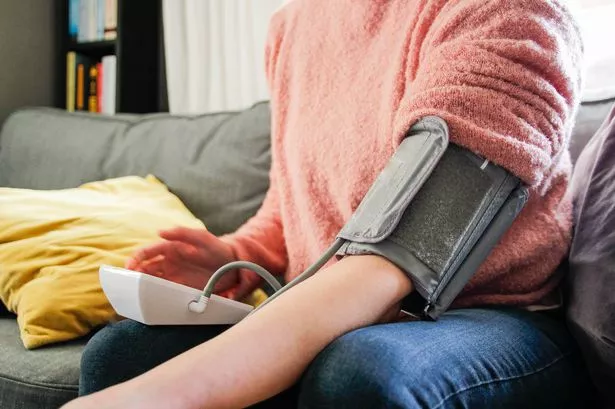
Scotland is bracing for its sunniest weekend of the year, with temperatures in Glasgow expected to soar to a record-breaking 30°C. As many residents prepare for outdoor activities, such as barbecues and beach outings, it is crucial to consider the impact of heat on health, particularly for those with high blood pressure.
High blood pressure, often called a “silent killer,” affects over 14 million adults in the UK, many of whom remain unaware of their condition. This health issue can lead to serious complications, including heart attacks and strokes. The current heatwave poses unique challenges for managing blood pressure, as hot weather can increase sweating and fluid loss, leading to dehydration and potentially lowering blood pressure.
According to the British Heart Foundation, dehydration can result in lower blood volume, heightening the risk of falls and fainting. Ruth Goss, a Senior Cardiac Nurse at the foundation, emphasized the importance of staying hydrated. She advised, “Water is best but milk, sports drinks, diluted squash, fruit juice, tea, and coffee all count. If you have been told to restrict your fluid intake, for example if you have heart failure, speak to your GP or heart failure nurse about other ways to keep cool.”
The Mayo Clinic identifies individuals over 50, those who are overweight, and people with heart, lung, or kidney conditions as being particularly vulnerable during hot weather. Some blood pressure medications may also affect the body’s ability to cope with high temperatures. The Medicines and Healthcare products Regulatory Agency (MHRA) has provided guidance on how common medications, including ACE inhibitors and beta-blockers, can impact temperature regulation.
Signs that the body may be struggling with heat include cold, clammy skin, confusion, dizziness, and rapid pulse. As temperatures rise, it is essential to take proactive measures to stay cool and safe.
Practical Tips for Staying Safe During the Heatwave
The Alzheimer’s Society has shared valuable tips to help those with dementia stay safe during the heatwave, which can also be beneficial for anyone spending time outdoors. Here are some recommendations:
1. **Dress Appropriately**: Wear light-coloured, loose-fitting clothing made from natural fibres to help prevent overheating.
2. **Stay in the Shade**: If outside during the hottest part of the day, which is typically between 11:00 and 15:00, seek shade and wear a hat.
3. **Manage Indoor Temperatures**: Close curtains and blinds during the day to keep rooms cool, particularly in sunny, south-facing areas. Open windows in the evening to allow cooler air in.
4. **Hydration is Key**: Keep glasses or bottles of cool water within reach. For those caring for individuals with dementia, encourage fluid intake through high-water-content foods such as ice lollies, melon, and yogurt.
5. **Check In on Vulnerable Individuals**: Families and caregivers are encouraged to check on elderly relatives or friends to ensure they are staying hydrated and safe from the sun.
6. **Recognize Heat Stress Symptoms**: Be aware of the signs of heat stress. If someone exhibits symptoms like confusion or fatigue, it is vital to move them to a cooler area and provide fluids.
Angelo Makri, a senior knowledge officer for wellbeing at the Alzheimer’s Society, urged families to take these precautions seriously. He stated, “As the temperatures rise this week, we are urging families and carers to check in on people with dementia to make sure they are staying hydrated, wearing light clothes, and keeping out of direct sun.”
With record temperatures approaching, prioritizing health and safety during this heatwave is essential. By following these tips, individuals can enjoy the beautiful weather while minimizing health risks associated with high blood pressure and heat exposure.







